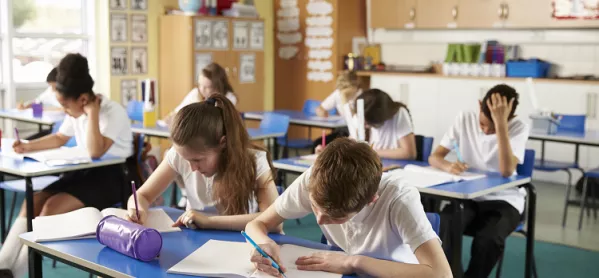A headteachers’ union has warned that support in schools for pupils with special educational needs and disabilities (SEND) is “under threat” following funding cuts.
The NAHT made the comments after a tribunal judge ruled that current legislation, which allows schools to exclude disabled children with “challenging behaviour”, is unlawful.
The ruling was made in the case of a 13-year-old boy with autism who was excluded for “aggressive behaviour”.
Paul Whiteman, NAHT general secretary, said the decision to exclude a pupil was always a “last resort”, but that supporting those with disabilities was increasingly difficult as school budgets were reaching “breaking point”.
He added: “Schools can’t do it on their own. To avoid exclusions, they need support from the other local services around them. The issues that underpin exclusions reach far beyond the school gates, so schools need access to expert resources to help them support at an early stage those students who need more help.
“Schools have seen big cuts to high-needs funding for pupils with identified SEND. We’ve also seen cuts in local authority services such as behaviour support teams, and reductions in pastoral care. Speech and language therapists for pupils with additional needs are disappearing. And there are frequently delays in providing mental health support for pupils who need it.
“This is an area where prevention is better than cure, but with school budgets at breaking point many of the measures that schools take to ensure good behaviour and adequate support for pupils are under threat.”
A Department for Education spokesperson said: “The high-needs budget for pupils with special educational needs is £6 billion this year, the highest on record, with core schools funding rising to £43.5 billion by 2020 - 50 per cent more per pupil in real terms than in 2000.
“We are also undertaking the biggest special educational needs reforms in a generation, introducing education and health care plans that are tailored to the needs of individuals and put families at the heart of the process.
“Already, nearly 320,000 children and young people are benefiting from these and we will continue to work to make sure every child gets the support they need to fulfil their potential.”




